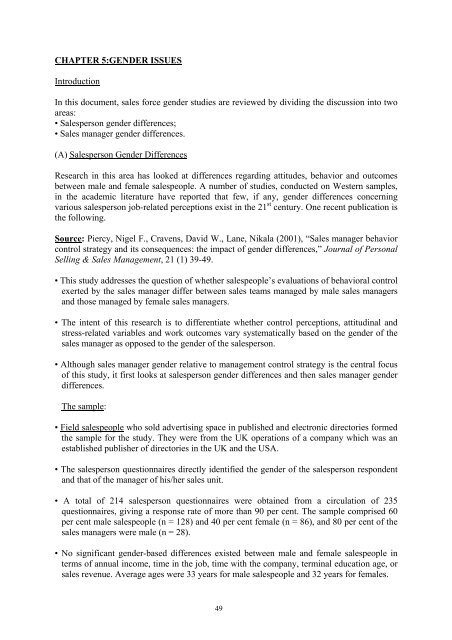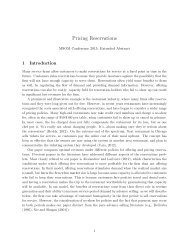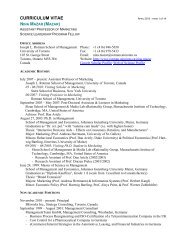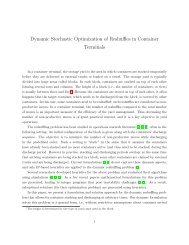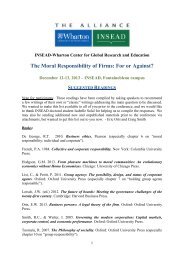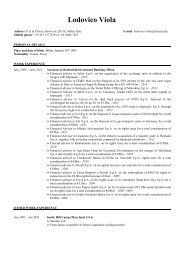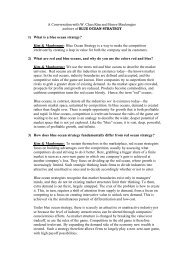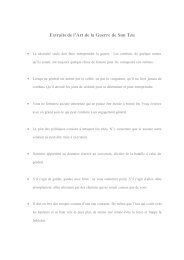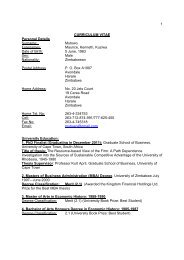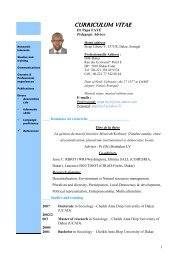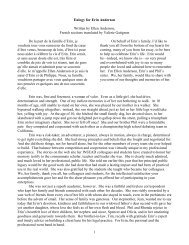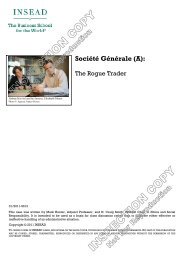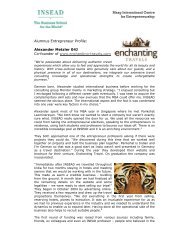Leading the Effective Sales Force: The Asian Sales Force ... - Insead
Leading the Effective Sales Force: The Asian Sales Force ... - Insead
Leading the Effective Sales Force: The Asian Sales Force ... - Insead
You also want an ePaper? Increase the reach of your titles
YUMPU automatically turns print PDFs into web optimized ePapers that Google loves.
CHAPTER 5:GENDER ISSUES<br />
Introduction<br />
In this document, sales force gender studies are reviewed by dividing <strong>the</strong> discussion into two<br />
areas:<br />
• <strong>Sales</strong>person gender differences;<br />
• <strong>Sales</strong> manager gender differences.<br />
(A) <strong>Sales</strong>person Gender Differences<br />
Research in this area has looked at differences regarding attitudes, behavior and outcomes<br />
between male and female salespeople. A number of studies, conducted on Western samples,<br />
in <strong>the</strong> academic literature have reported that few, if any, gender differences concerning<br />
various salesperson job-related perceptions exist in <strong>the</strong> 21 st century. One recent publication is<br />
<strong>the</strong> following.<br />
Source: Piercy, Nigel F., Cravens, David W., Lane, Nikala (2001), “<strong>Sales</strong> manager behavior<br />
control strategy and its consequences: <strong>the</strong> impact of gender differences,” Journal of Personal<br />
Selling & <strong>Sales</strong> Management, 21 (1) 39-49.<br />
• This study addresses <strong>the</strong> question of whe<strong>the</strong>r salespeople’s evaluations of behavioral control<br />
exerted by <strong>the</strong> sales manager differ between sales teams managed by male sales managers<br />
and those managed by female sales managers.<br />
• <strong>The</strong> intent of this research is to differentiate whe<strong>the</strong>r control perceptions, attitudinal and<br />
stress-related variables and work outcomes vary systematically based on <strong>the</strong> gender of <strong>the</strong><br />
sales manager as opposed to <strong>the</strong> gender of <strong>the</strong> salesperson.<br />
• Although sales manager gender relative to management control strategy is <strong>the</strong> central focus<br />
of this study, it first looks at salesperson gender differences and <strong>the</strong>n sales manager gender<br />
differences.<br />
<strong>The</strong> sample:<br />
• Field salespeople who sold advertising space in published and electronic directories formed<br />
<strong>the</strong> sample for <strong>the</strong> study. <strong>The</strong>y were from <strong>the</strong> UK operations of a company which was an<br />
established publisher of directories in <strong>the</strong> UK and <strong>the</strong> USA.<br />
• <strong>The</strong> salesperson questionnaires directly identified <strong>the</strong> gender of <strong>the</strong> salesperson respondent<br />
and that of <strong>the</strong> manager of his/her sales unit.<br />
• A total of 214 salesperson questionnaires were obtained from a circulation of 235<br />
questionnaires, giving a response rate of more than 90 per cent. <strong>The</strong> sample comprised 60<br />
per cent male salespeople (n = 128) and 40 per cent female (n = 86), and 80 per cent of <strong>the</strong><br />
sales managers were male (n = 28).<br />
• No significant gender-based differences existed between male and female salespeople in<br />
terms of annual income, time in <strong>the</strong> job, time with <strong>the</strong> company, terminal education age, or<br />
sales revenue. Average ages were 33 years for male salespeople and 32 years for females.<br />
49


